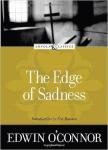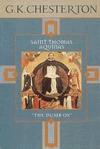Adults
The Edge of Sadness
At first glance, Edge of Sadness by Edwin O’Connor is a walk down memory lane. A memory of the American Catholic church before Vatican II, before the priest scandals. A lovely, nostalgic read. But the thing that makes this book worthy of the Pulitzer Prize it won in 1962 is the fact that O’Connor’s story is truly ageless. The characters are drawn from humanity, painted with the author’s word-brush so lovingly and carefully that by the end of the book you know each of these folks intimately. And, you like them, in spite of their less-than-virtuous actions.
here.now. a catholic guide to the good life
The world claims to have the answers, but what are they? Please yourself, answer to no one, claim your truth, reject any close-minded or intolerant positions, be tolerant and diverse and accepting of other truths, whatever they are, except if they are intolerant.
If these are the answers, what are the questions?
When young people ask themselves:
Angels in Iron
Angels in Iron is the absorbing tale of the siege of Malta in 1564 between the Knights of St. John of the Hospital (a military religious order) and Suleiman's forces. Suleiman, the most famous sultan of the Turkish Ottoman Empire (who has at this point significantly expanded his empire) has grand plans to conquer the world – and that includes Malta, the new home of the Knights of St. John of the Hospital. The Grand Master of this order witnessed their surrender at Rhodes (their former home) when he was a young knight.
de-coding Da Vinci
The 2003 release of the novel The Da Vinci Code created one of the largest literary crazes in recent history. With sales of almost 6 million in its first year, the novel gained a cult-like following. Author Dan Brown's ability to blend fact and fiction left many readers questioning what they really knew of the origins of Christianity. News is now out that we can expect to see the story in theaters in about a year. Certainly viewers will come away with many of the same questions readers had as to how much, if any, of the story line is factual, and how much is fiction.
St. Thomas Aquinas
It does not seem adequate to compare it to a TV show but it reminds me of one of those really good PBS documentaries that gets you totally involved in something you didn't ever think was that big a deal.









